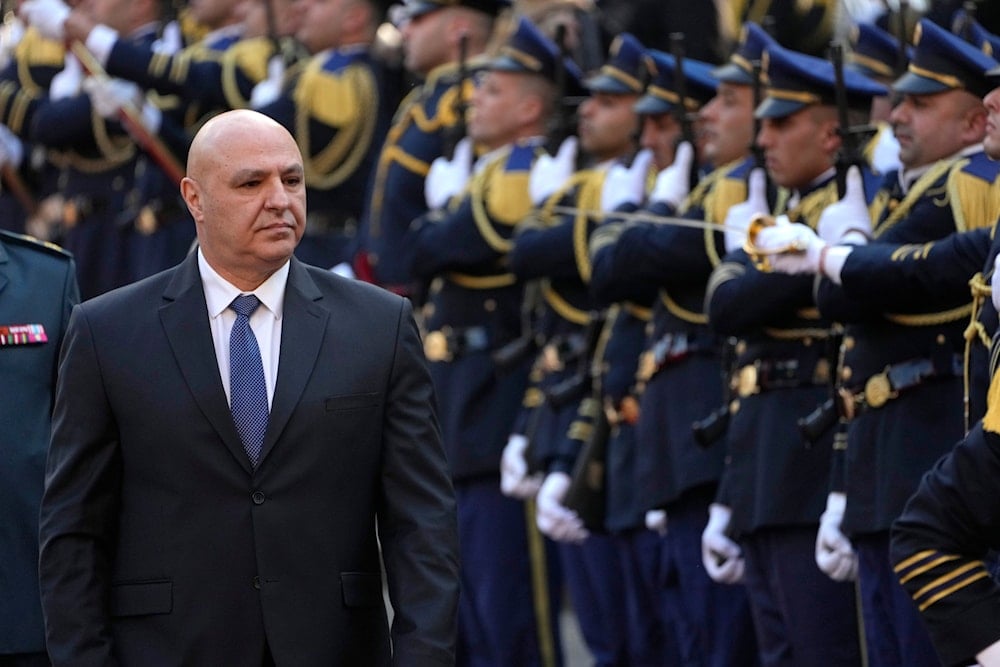Newly-elected Lebanese President begins consultations on new PM
Lebanese President Joseph Aoun is conducting binding consultations with independent representatives and parliamentary blocs to select the prime minister-designate to form the new government.
-

Newly-elected Lebanese President Joseph Aoun reviews the honor guard upon his arrival at the Lebanese Parliament to be sworn in as a new president, in Beirut, Lebanon, on January 9, 2025. (AP)
The new Lebanese President, Joseph Aoun, initiated his parliamentary consultations on Monday to select the prime minister-designate responsible for forming Lebanon's next government.
According to Al Mayadeen's correspondent, Aoun's consultations began at the presidential palace, east of the capital Beirut. These discussions mark an important step in the political process, as Lebanon seeks to address its ongoing governance challenges.
President Aoun is set to meet with independent representatives and parliamentary blocs separately today as part of his consultations to elect the next prime minister.
Following these meetings, he is expected to announce the name of the prime minister-designate, based on who receives the most nominations. This process is a critical step in forming a new government amid Lebanon's political and economic challenges.
The outgoing Prime Minister, Najib Mikati, and Judge Nawaf Salam are now the main contenders for the premiership. With the withdrawal of Fouad Makhzoumi and Ibrahim Mneimneh in favor of Salam, the race has effectively narrowed down to these two figures as President Joseph Aoun continues his consultations to determine the next prime minister-designate.
Parliamentary consultations to select the Prime Minister are a constitutional process mandated by Article 53 of the Lebanese Constitution. According to this article, the President of Lebanon is responsible for conducting these consultations with parliamentary blocs and independent representatives to determine the candidate who enjoys the greatest support within the legislature.
On January 9, after more than two years of presidential impasse following the end of former President Michel Aoun's term, the Lebanese Parliament elected Army Commander Joseph Aoun as the 14th President of the Lebanese Republic.
Joseph Aoun, the commander of the Lebanese Army, now holds the presidency, following the terms of his predecessors: Emile Lahoud, Michel Suleiman, and Michel Aoun.
After 71 deputies voted for the army commander in the first round, he won in the second round, with 99 recorded votes.
It is worth noting that all 128 Lebanese representatives participated in the presidential election, with ambassadors from several countries in attendance, including those of the United States, Saudi Arabia, Iran, Qatar, Egypt, and China.

 2 Min Read
2 Min Read








